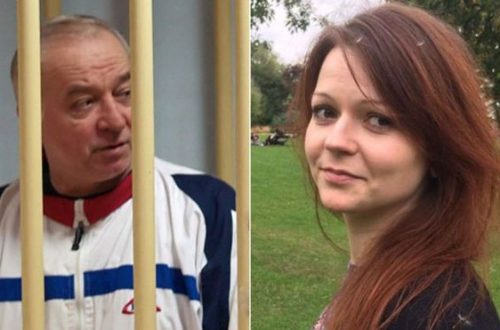Nick Cohen in the Observer has some thoughts and historical context on the role of judicial inquiries and Lord Hutton’s attempt in particular. A few excerpts:
Last week a furious Government was complaining that charlatans were crying ‘whitewash’ because they couldn’t take defeat gracefully. It’s true that journalists are the world’s worst hypocrites; we want everyone to be held to account – except ourselves. It’s also true that many in the anti-war movement wouldn’t accept any verdict other than Tony Blair sold his soul to the Devil. But it’s perfectly possible to believe that the BBC wasn’t big enough to apologise for its mistake and that Andrew Gilligan sank as low as it’s possible for a journalist to sink when he betrayed David Kelly, and still find Hutton’s efforts feeble.
His Lordship has invented a novel gambit which Denning and Widgery might have applauded. He used his terms of reference like a mugger uses a doorway. When the BBC walked by, he leapt out and gave it a kicking. When the big boys from the Government turned into the street, he hid in the shadows.
……It’s the double-standards in his report which has put Hutton on the receiving end of a lethal feeling in Britain: the feeling that what he has done simply isn’t fair. Before the war, two institutions were trusted: the BBC and the judiciary. In his effort to destroy trust in the BBC, Lord Hutton has brought a belated but deserved disgrace to juidicial inquiries.
There are also some interesting comments from Henry Porter on Hutton:
At the heart of the process is a mysterious lack of logic. On the one hand Hutton spent weeks listening to evidence about the preparation of the Government’s case against Saddam in the September dossier, but when it came to writing his report he rejected the need to address the issue of the dossier’s truth. ‘A question of such wide import … is not one which falls within my terms of reference.’
Two points need to be made:
1. If he was not going to rule on this, why go into the facts at such length?
2. The truth of the dossier’s contents is the essence of the circumstances of Kelly’s death because that issue propelled the BBC and Campbell to escalate their running battle to open war. Owning the truth was what that was all about.
Which does rather beg the question as to whether there is any point in another such inquiry into the whole build-up to war?
Or perhaps instead we could have a judge look into the media’s reporting of that build up?
Matthew Turner has got the ball rolling with a reminder of how the nation’s best selling newspaper reported the dossier:
“Brits 45 mins from doom”,
“British servicemen and tourists in Cyprus could be annihilated by germ warfare missiles launched by Iraq, it was revealed yesterday.
“They could thud into the Mediterranean island within 45 MINUTES of tyrant Saddam Hussein ordering an attack. And they could spread death and destruction through warheads carrying anthrax, mustard gas, sarin or ricin. The terrifying prospect was raised in Downing Street’s dossier on Saddam’s arsenal …”


